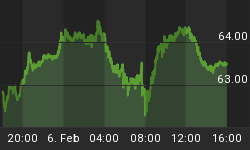If one does not know the real cause of a problem, they should also be unable to provide a genuine solution.
Messer's Obama, Bernanke and Geithner do not understand the real cause of this debt crisis. They are politicians first and economists or students of the market second; if at all. Therefore, it is not wise to ask them if the great recession is indeed over, or for them to provide a plan to prevent another from occurring in the future.
The cause of the Great Depression in the 1930's and the Great Recession beginning in 2007 was an overleveraged economy. An overleveraged economy is the direct result of artificially-provided low interest rates from the central bank and superfluous lending on the part of commercial banks. That easy money provided by banks eventually brings debt levels in the economy to an unsustainable level. At that point, the only real and viable solution is for the public and private sector to undergo a protracted period of deleveraging. The ensuing depression is, in actuality, the healing process at work, which is marked by the selling of assets and the paying down of debt.
However, all efforts on the part of our politicians today are to fight the natural healing process and to promote the accumulation of more debt. During this latest economic contraction, the Fed took interest rates to near zero percent and the administration is leveraging up the public sector to record levels in order to re-leverage the private sector. The government's philosophy is tantamount to sticking a frost bitten man in the freezer so he won't have to suffer the pain associated with thawing off his extremities.
During the Great Depression, real GDP plummeted 32%. According to the National Bureau of Economic Research, this Great Recession--which we are still struggling through--began in December of 2007. In contrast to the 1930's, during this recession GDP shrank only 3.6% from Q4 2007 to its low point, which was reached in Q2 of 2009. And from Q4 2007 to the latest reading on output in Q1 2010, GDP contracted a total of just 1.1%.
But the contraction in GDP which occurred during the Great Depression was the direct result of consumers paying down debt and selling off assets. Household debt as a percentage of GDP reached nearly 100% in 1929. The only other year it approached that level was in Q1 of 2009. To put that number into perspective, after the depression ended Household debt did not go back above 50% of GDP until the third quarter of 1985.
From the start of the depression to the end of WW11, Household debt fell from 100% to just above 20% of GDP. Although it was a painful process, it was the only real solution to an economy soaked in debt. But today, thanks to government efforts to carry on our debt-fueled consumption binge, this current Great Recession has witnessed Household debt barely contract at all; it fell to 92.53% of GDP in Q1 2010.
To make matters even worse, during this current crisis our government's response to the economic contraction has been to dramatically increase their borrowing. At the start of the great depression, gross Federal debt was just 16% of GDP. It peaked at just fewer than 44% by the time the depression ended. So while the National debt did increase significantly during that period, it still was relatively benign when viewed from a historical perspective. At the start of this Great Recession, the gross National Debt was 65% of GDP. Today it has exploded to 90% of GDP! Therefore, if you compare the relatively innocuous level of debt in the 1930's with that of today, it clearly illustrates the perilous state of the economy.
While it is true that the National Debt did rise dramatically during WW11 (120% in 1946), consumer debt plunged concurrently. So while the nation was adding on debt during the process of fighting and winning the Second World War, households were taking the necessary steps to ensure their balance sheets were well prepared for the aftermath of the battle.
Today, for the first time in our history both the gross national debt and household debt are at or above 90% of GDP.
Many are contending -- unfortunately most of those in power at this time--that the government must spend more while the consumer contracts. Their hopes are based in the belief that once the economy gets going they can unwind that debt. There are two problems with this Keynesian theory. One is that government spending doesn't increase GDP; it only serves to choke off private sector growth. And the other is that the government never believes it's ever a good time to pay off the debt incurred. Therefore, the country is left with a private sector that is contracting and with a massive overhang of debt. That contraction in growth exacerbates debt to GDP levels even further.
Since we have yet to address the real cause of this recession, we are moving inexorably closer to causing The Greater Depression. And a long period of debt reconciliation still lies ahead.
If one does not understand that the progenitor of a depression is debt, they will also be unable to provide the genuine solution, which is deleveraging.















